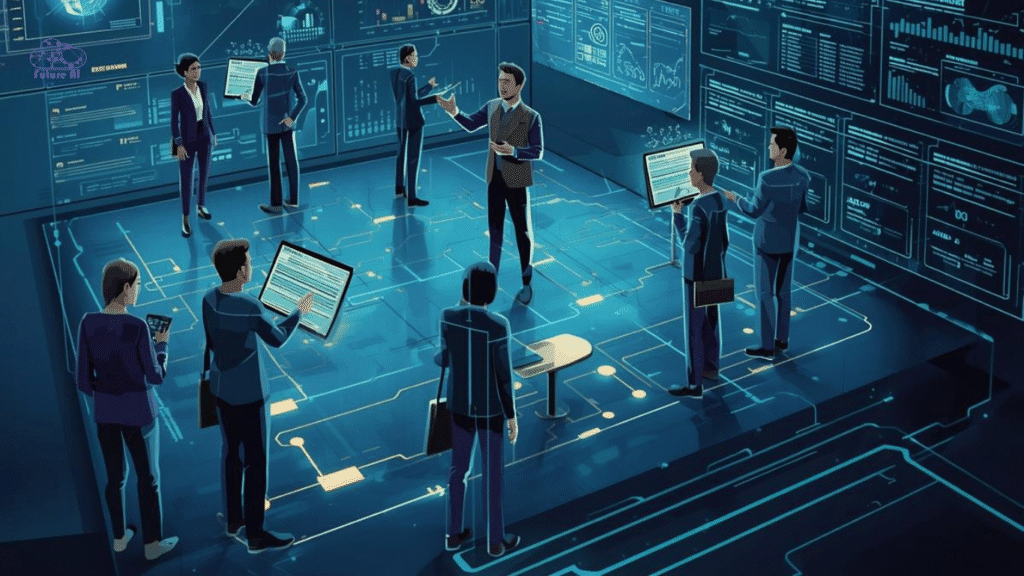Have you ever felt something was “off” in your relationship and wondered if technology could help confirm your doubts?
In today’s AI-driven world, even emotional behavior and digital communication leave data trails. Some tools, like OopsBusted, claim to help people “catch a cheater with AI.”
But can AI really tell if someone is being unfaithful? And is it even legal or ethical to use such tools?
This guide explains how AI cheating detection tools work, what OopsBusted actually does, where the risks lie, and how you can use AI responsibly to protect your trust, not violate privacy.
Understanding the Rise of AI Cheating Detection Tools
AI has changed almost every part of modern life from business analytics to online dating. It was only a matter of time before it entered the world of relationship monitoring.
Over the last few years, dozens of tools and platforms have appeared that claim to:
- Analyze digital conversations for emotional changes.
- Detect suspicious keywords or behaviors.
- Track location or device activity patterns.
- Flag unusual communication frequency or timing.
One of the most discussed platforms online is OopsBusted, a viral AI-based tool that markets itself as a way to “catch cheaters.”
What Is OopsBusted?
OopsBusted is an online AI-driven service that claims to help people identify cheating or dishonesty through digital footprints.

According to user discussions and public reviews, it analyzes various forms of data such as messages, images, and social interactions to find behavioral patterns that may indicate infidelity.

However, it’s important to note:
- OopsBusted is not affiliated with any official legal or investigative service.
- Its effectiveness depends on the data users voluntarily upload or share.
- It can raise serious privacy, security, and consent issues if used without mutual agreement.
So, while the idea of AI exposing secrets sounds powerful, users must understand the limits, risks, and responsibilities.
How AI Tools Like OopsBusted Claim to Work
Let’s break down what these tools typically do using OopsBusted as an example:
| Feature | How It Works | Purpose |
| Message Pattern Analysis | AI scans conversations for emotional tone shifts, deleted texts, or coded phrases. | To find inconsistencies or possible “lying” cues. |
| Image Metadata Check | Reviews timestamps, GPS data, or filters in shared images. | To detect fake or suspicious photo origins. |
| Social Behavior Mapping | Analyzes social media activity, likes, follows, and time spent online. | To identify new or secret interactions. |
| Voice Emotion AI | Examines recorded voice notes for stress or deception signals. | To assess emotional tone. |
| Timeline Correlation | Compares digital activities with claimed events or locations. | To find mismatches. |
While these methods sound advanced, they rely on probabilistic analysis, not proof. AI can suggest suspicious behavior, but it cannot confirm guilt especially without full context.
Why People Turn to AI for Relationship Clarity
1. Emotional uncertainty
When someone feels disconnected, AI feels like a neutral, data-driven truth teller.
2. Digital relationships
With texting, DMs, and video calls, most interactions now leave data footprints.
3. Lack of trust or communication
Instead of open conversations, many people rely on digital “evidence” to justify feelings of doubt.
4. Accessibility of AI
Anyone can now access AI tools online either free or paid. You can make these technologies tempting for personal issues.
But before using any such AI service, it’s essential to ask:
Am I solving the real problem, or creating a new one?
The Ethical and Legal Risks of Using AI to Catch a Cheater
Even if an AI tool looks accurate, the legal and ethical boundaries around personal data and surveillance are strict.
1. Privacy laws
In many countries, accessing someone’s private messages, photos, or accounts without consent is illegal regardless of intent.
2. Data security
Uploading sensitive personal data to third-party AI websites risks exposure, leaks, or misuse.
3. False positives
AI cannot fully understand sarcasm, jokes, or human emotion. It may flag innocent behavior as suspicious, creating unnecessary conflicts.
4. Mental and emotional harm
Constant digital monitoring can harm both partners and destroy trust permanently.
That’s why experts advise using AI tools only for data organization, communication pattern tracking, or relationship counseling support but not surveillance.
Safe and Responsible Ways to Use AI for Relationship Clarity
You can use AI ethically to improve trust, understand communication, and strengthen transparency without spying.
Here’s how:
1. Use AI for open communication analysis
AI chat tools like ChatGPT, Otter.ai, or Claude can help you analyze the tone of your conversations with your partner with consent.
Example: “Is my tone coming across as too defensive?”
Think AI tools like OopsBusted are powerful? Wait till you see what ChatGPT Go can do.2. Organize relationship data
Tools like Notion AI or Monday.com AI can help you manage time spent together, schedules, or communication logs (if shared mutually).
3. Use AI-based therapy assistants
Apps like Wysa or Replika offer emotional support, helping you understand your feelings before acting out of suspicion.
4. Conduct digital hygiene checks
Use AI-powered security or device monitoring tools (like Norton Genie or F-Secure AI) to ensure no one is manipulating your data.
This way, AI becomes a support tool, not a weapon
Explore how ChatGPT’s latest tools Tasks and Custom GPTs can transform your workflow, creativity, and productivity.
Realistic View: Can AI Truly Catch a Cheater?
In short: Not accurately or ethically.
AI can identify patterns of behavior, suspicious metadata, or social inconsistencies, but it cannot:
- Understand full emotional context.
- Differentiate between friendship and intimacy.
- Confirm truth without human interpretation.
In fact, many relationship experts believe that over-reliance on AI detection tools leads to false conclusions and worsens communication problems.
Instead, use AI to gain insights and combine it with human judgment and honest dialogue.
How to Protect Yourself If You Try OopsBusted or Similar Tools
If you still want to explore AI-based analysis platforms like OopsBusted, take safety precautions:
- Never upload someone else’s private data without consent.
- Avoid tools that don’t explain their data usage policies.
- Use a temporary or secure account if you must test such a platform.
- Read the fine print as some tools store or sell your data to advertisers.
- Remember AI is not evidence and use professional counseling instead of confrontation based only on algorithmic “results.”
Alternatives to AI Cheater Detection Tools
If you want to rebuild trust the right way, these ethical AI-supported alternatives help more than surveillance tools:
| Tool Type | Example AI Tools | Purpose |
| Communication Analysis | ChatGPT, Claude, Grammarly Tone Detector | Improve tone and empathy in chats |
| Relationship Journaling | Notion AI, Evernote AI | Track relationship growth and issues |
| Therapy and Support | Wysa, Replika, Woebot | Manage anxiety, self-reflection |
| Time Management | Motion, ClickUp AI | Balance work-life priorities |
| Emotional Intelligence AI | Hume AI, Ello | Recognize emotional trends |
Using these AI assistants helps couples understand emotions, improve trust, and communicate better, without breaching privacy.
Expert Insight: What Psychologists Say
Modern relationship psychologists agree that technology can be both a helper and a divider.
According to Dr. Lisa Bennett, a digital relationships researcher:
“AI can help analyze patterns, but it lacks empathy. The real key to solving relationship trust issues still lies in honest communication, not algorithms.”
Similarly, cybersecurity experts warn that many “cheater-catching” platforms online use suspicious data collection methods or even fake AI reports to draw traffic.
So while curiosity is natural, protecting your digital and emotional health should come first.
The Future of AI and Relationship Insights
In the coming years, AI tools will become more emotionally aware. With advancements in emotion recognition, natural language understanding, and behavioral analytics, future AI systems could help couples:
- Detect communication gaps before they grow.
- Suggest personalized counseling strategies.
- Predict emotional burnout or relationship stress early.
But experts believe these tools must always include strict privacy and consent features to ensure ethical use.

AI should never be used to invade, its only need to understand.
- AI can identify patterns, not truths. Use it as a guide, not a verdict.
- OopsBusted and similar tools can raise ethical and privacy concerns.
- Trust and communication remain the strongest “detection tools.”
- Use AI for emotional intelligence, not digital spying.
FAQs About AI and Cheating Detection
Q1. What is OopsBusted?
OopsBusted is an AI-based online tool claiming to detect cheating behavior by analyzing messages, photos, or social activity patterns.
Q2. Is OopsBusted safe or legit?
It’s not an official or verified platform. Always read privacy terms and avoid uploading sensitive or personal data.
Q3. Can AI really detect cheating?
No. AI can highlight possible patterns but cannot understand emotional context or human intent.
Q4. Are there ethical AI tools for relationship support?
Yes. Tools like Wysa, Replika, and ChatGPT help improve self-awareness and communication ethically.
Q5. What should I do if I suspect cheating?
Talk openly. If needed, consult a professional relationship counselor, not just AI software.
Conclusion: AI Should Support, Not Spy
AI can be a powerful partner in emotional understanding, but it should never replace trust, respect, or human connection.
Tools like OopsBusted might attract attention, but real relationship stability doesn’t come from scanning texts as it comes from honesty, empathy, and open dialogue.
If you choose to use AI, use it to strengthen your bond, not to break it.